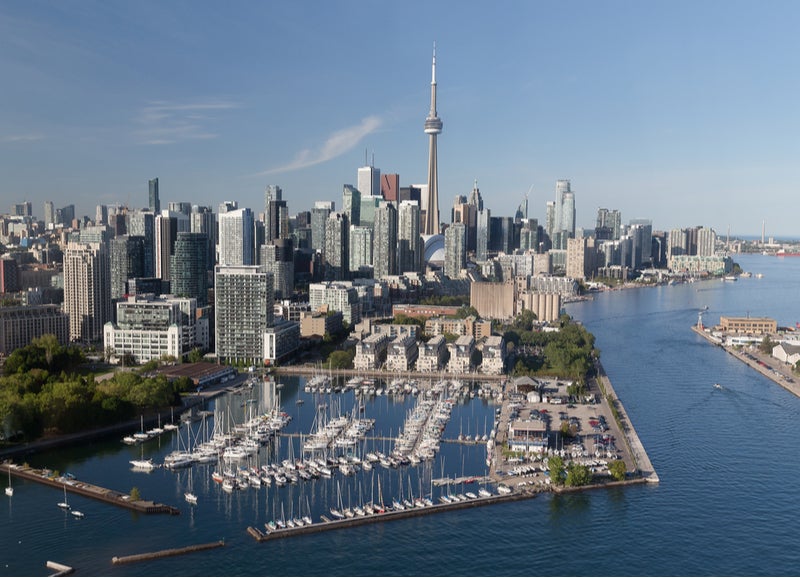Public trust in Google, Amazon, Facebook and Apple (GAFA) has never been lower and evidence suggests a wave of regulation will soon be unleashed against tech companies.
Data privacy is not disappearing as a dominant urban concern in the global environment, not for Silicon Valley, not for would-be smart cities around the world and certainly not for government regulators.
GlobalData’s recent Data Privacy report – by its Thematic Research team – warns that Big Tech’s golden age of light-touch regulation, strong political alliances and near immunity from prosecution is coming to an end.
A case in point is Toronto’s controversial smart cities project. Plans for a high-tech waterfront development by Sidewalk Labs, a subsidiary of Alphabet (Google’s parent company), have had to address growing public concerns over what data it will collect in bringing the project to fruition.
Sidewalk Labs’ involvement in the project began in 2017 when Waterfront Toronto, the stewards of Toronto’s local revitalisation, appointed the tech designer to oversee innovations as part of a 4.8-hectare ‘Quayside’ development on the eastern downtown shore of Lake Ontario.
When Sidewalk Labs’ detailed proposals were published in June 2019 in a 1,500-page Master Innovation and Development Plan (MIDP), the project had grown to encompass a 77-hectare site, comprising of both a ‘Quayside’ and a surrounding Innovative Design and Economic Acceleration (IDEA) district.
How well do you really know your competitors?
Access the most comprehensive Company Profiles on the market, powered by GlobalData. Save hours of research. Gain competitive edge.

Thank you!
Your download email will arrive shortly
Not ready to buy yet? Download a free sample
We are confident about the unique quality of our Company Profiles. However, we want you to make the most beneficial decision for your business, so we offer a free sample that you can download by submitting the below form
By GlobalDataUrban Data Trust scrapped
Under those plans, Sidewalk Labs also addressed privacy issues by publishing how it would collect and use personal data generated as part of its digitally-focused development in what it describes on its website as “reimagining cities to improve quality of life”.
To this end, Sidewalk Labs outlined the creation of an Urban Data Trust, which would provide governance for the data generated within the smart city project area.
Under this idea, oversight of data becomes the responsibility of an external board. Sidewalk Labs proposed an independent, government-sanctioned entity to manage data and establish a process to approve its collection and use. However, Sidewalk Labs found its grand plan was roundly criticised, despite it being “developed in consultation with more than 21,000 Torontonians”, as the company described it.
As well as anxieties over Sidewalk Labs’ ambition to extend the project’s geographical reach much of the criticism was directed at its data privacy approach.
Under pressure from locals and data privacy specialists, the Urban Data Trust idea was dropped on 31 October as part of an agreement between the two sides and it was agreed to rein back to the original 4.8-hectare proposal.
Governance shift suits all
In November 2019, Sidewalk Labs subsequently published a Digital Innovation Appendix, which confirmed Waterfront Toronto would take the lead on data governance. It also said there would be no further use by Sidewalk Labs of an IDEA district.
The governance change arguably suits all sides. Sidewalk Labs admitted in the Appendix that there had been consistent feedback for existing, government-established entities to take the data governance lead.
By washing its hands of any data governance ownership, Sidewalk Labs can now get on with its plans for “providing a global model for inclusive urban growth” ahead of a final decision by Waterfront Toronto in March 2020.
What next?
The significant negative press coverage attracted by Google’s sister company in Toronto may have significant ramifications and embolden citizens in other cities to raise similar concerns over data security.
One headline in the local press: “Toronto held its own and Big Tech blinked on Quayside development” has highlighted an ‘us and them’ divide between digital development big business on one side and popular grass-roots opposition on the other.
Sidewalk Labs’ ambitions may have been bruised, but it is unlikely to walk away from the project. It has learned much that it can apply in other cities. However, even if plans get the final go-ahead in 2020, expect every project milestone to be closely scrutinised. The other big lesson is, if Big Tech thinks it is under the microscope in Toronto, it should expect far more to come.
It’s now time for Big Tech – and Big Government – to take data privacy seriously.
Related Report:









Related Company Profiles
Google LLC
Meta Platforms Inc
Alphabet Inc
Apple Inc
Amazon.com Inc